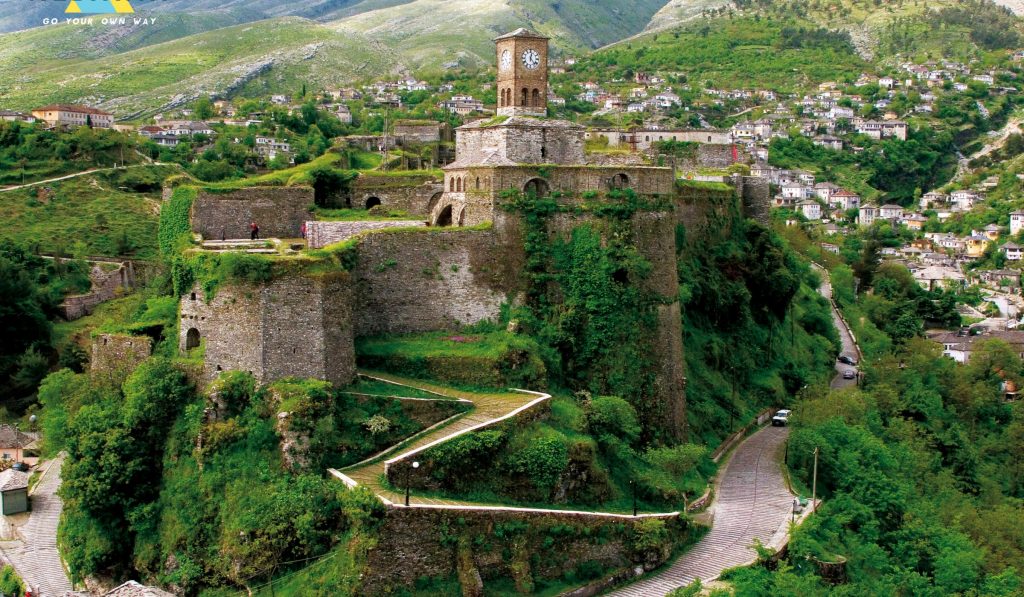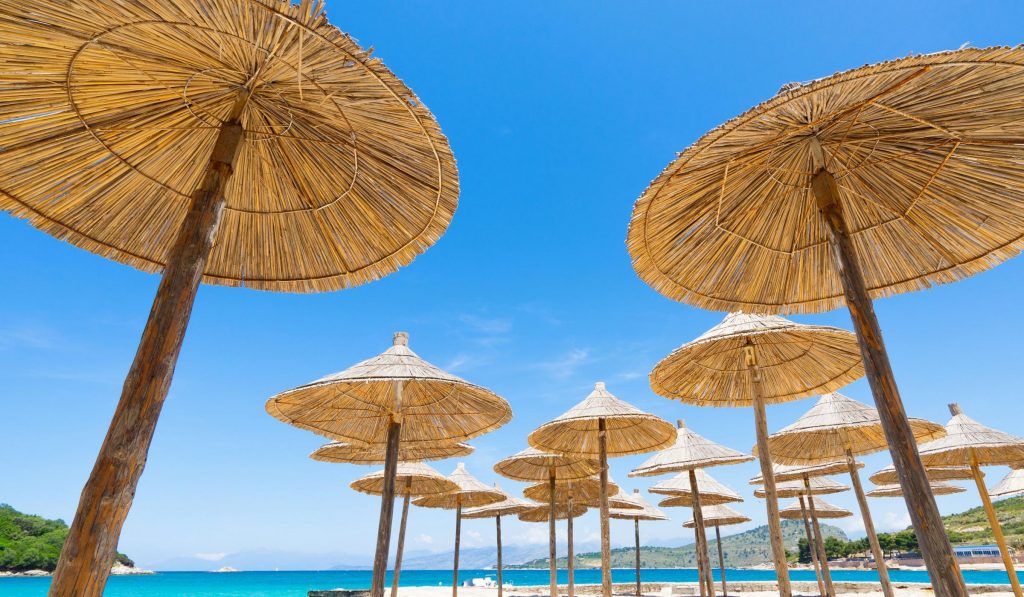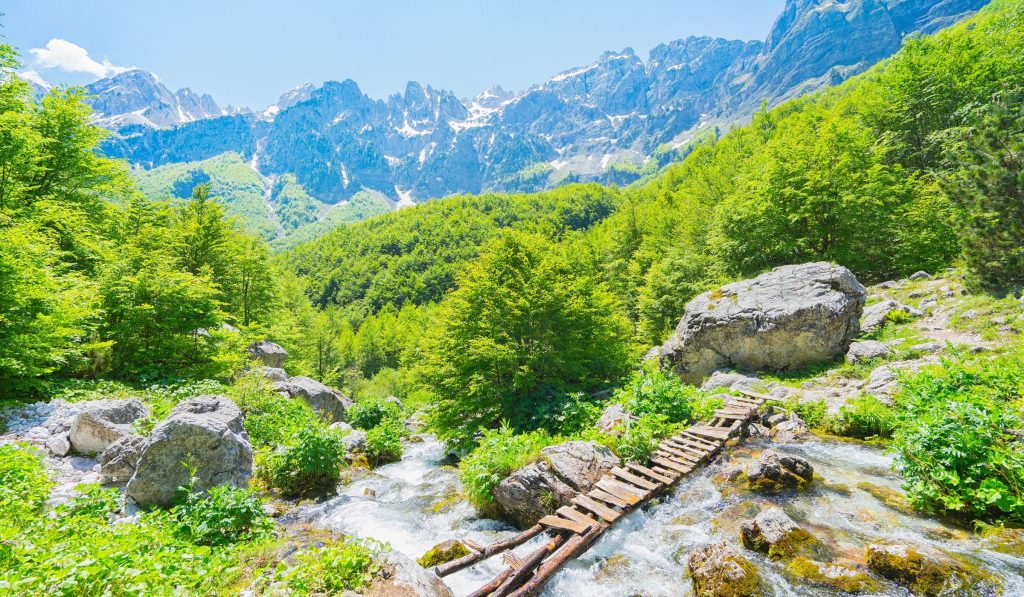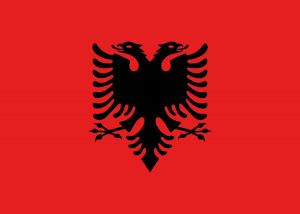 By professor Rob Atenstaedt, on behalf of the Albanian Embassy in the UK
By professor Rob Atenstaedt, on behalf of the Albanian Embassy in the UK
Introduction
When you hear the word Albania, what do you think of? A communist country where Norman Wisdom’s films were the only Western ones which were allowed to be shown as its leadership believed that the movies, in which Pitkin “got one over” his bosses, were a socialist parable on class warfare? Or a modern Western parliamentary democracy which has one of the fastest growing economies in the Balkans? By the end of this article, I am sure that you will have been persuaded of the latter.
Albania is located in south-eastern Europe, bordering the Adriatic and Ionian Seas to the west, Greece to the south and Kosovo and Montenegro to the north (1). The country has a population of about 3 million, about the size of Wales; its capital Tirana has around 800,000 inhabitants.
Albania is a nation rich in natural resources (1). These include petroleum, gas, bauxite, chromium, copper, iron ore, nickel, salt and timber. It also has a large capacity for the production of sustainable energy such as hydro, wind and solar. Albania has a strong manufacturing sector, especially in the clothing and footwear industries (2).
Modernising the Business Environment in Albania
Albania’s foreign trade regime has been liberalized since 1990 by its Government and is now in compliance with guidelines set by the European Union (EU) and World Trade Organisation (member since 2000) (1). To this end, the Albania Government has signed several Free Trade Agreements (FTAs) with key markets – EU, Turkey, Central European Free Trade Association (CEFTA) and European Free Trade Association countries (EFTA); these offer customs free access to a huge number of consumers. The Albanian Government has also signed 43 bilateral treaties for the promotion and protection of investments and 41 bilateral treaties for the avoidance of double taxation and fiscal evasion. In June 2014, Albania was awarded candidate status by the EU.
 The Government has also invested in transport infrastructure. Albania has ports in four main cities – Durres, Vlora, Saranda and Shengjini and there are plans to expand these. Tirana International Airport is named after Mother Theresa, who was Albanian by birth (2). There are a number of road improvement projects ongoing in the country, as well as a comprehensive railway network which is being upgraded.
The Government has also invested in transport infrastructure. Albania has ports in four main cities – Durres, Vlora, Saranda and Shengjini and there are plans to expand these. Tirana International Airport is named after Mother Theresa, who was Albanian by birth (2). There are a number of road improvement projects ongoing in the country, as well as a comprehensive railway network which is being upgraded.
Foreign Direct Investment annual inflows in Albania have increased substantially since 2008, averaging close to USD 1 billion per year for the period 2008-2015 (1). The largest recipients of investment are the mining sector (primarily oil and gas), telecommunication, financial service, wholesale and retail sales. At the end of 2015, there were around 10,500 foreign companies operating in the country (3).
The Government of Albania is currently focussing on promoting and attracting foreign investment in the renewable energy, tourism, agriculture, infrastructure, manufacturing and service sectors (1).
Improving the Legal Environment for Investing in Albania
The new “Strategic Investment Law” has strengthened the contractual and judicial security of foreign enterprises and provides a fast track route for investment projects (1). Strategic investments are classified as all private, public, or public-private investments in the energy and mining sectors, transport, telecommunications, infrastructure and urban waste, tourism, agriculture and fisheries, economic zones and priority development areas. The investment values based on these strategic sectors varies from $1m Euro to $50m Euro.
The new “Tourism Law” offers incentives to investors in the tourism industry, with a view to improving quality and raising standards (3). According to the Albanian Government’s fiscal package for 2017, all companies that invest in building 4-5 star hotels and resorts will benefit from tax free status for the next 10 years of their activity.
The new Strategic Investments Committee, chaired by the Prime Minister of the Albania, is the competent authority for prioritising investment projects (1). The Albanian Investment Development Agency (AIDA) is responsible for supporting investors through a one stop shop model.
Two types of Strategic Status have been created for investments in Albania – Assisted Status and Special Status (1). In the former, the investor may benefit from: Application and support through AIDA, priority treatment, fast track procedures, land consolidation and access to immovable state properties. In the latter, the investor may also benefit from expropriation of immovable properties, private properties and investment contract endorsement by the Albanian Parliament.
The Law on “Foreign Investments” creates a hospitable investment climate (1). This provides guarantees to all foreigners (either physical or judicial persons) investing in Albania and stipulates the following: No prior government authorization is needed and no sector is closed to foreign investment; There is no limit on the share of foreign participation in companies (100% foreign ownership is possible); Foreign investors have the right to expatriate all funds and contributions in kind of their investment; The tax system does not distinguish between foreign and domestic investors; Foreign investments may not be expropriated or nationalized directly or indirectly and will not be subject to any measure or similar action, except for public purposes determined by law; Foreign investments will be treated in a non-discriminatory manner. There are some limited exceptions to this liberal investment regime, most of which apply to the purchase of real estate. There are no restrictions on the purchase of private residential property. However, agricultural land cannot be bought by foreigners and foreign entities, but may be rented for up to 99 years. Commercial property may be purchased, but only if the proposed investment is worth three times the price of the land.
Benefits of Investing in Albania
There are many good reasons to invest in Albania apart from a liberal and reformist investment climate and free access to large markets due to the FTAs that Albanian has negotiated (1). These include: Competitive labour cost – the average wage is one of the most competitive in the region; Young and well educated population – 57% of Albania’s population is under the age of 35 years; Competitive taxation and incentives; Optimal geographic location – the country’s vicinity to major European markets; Strong growth potential – export-oriented, with 21% annual growth rate for the past 5 years; The Law on “Free Economic Zones” has created a competitive environment for economic and technological development areas; Albania benefits from the Generalized System of Preferences with USA, Australia, Japan, New Zealand, Russian Federation, Belarus, Kazakhstan; Macroeconomic stability – Albania is characterized by stable prices, low inflation and solid exchange rates.
 In summary, Albania is a country of great economic potential because of its geographical location, natural resources and young and highly educated population. According to the Albanian Government, the country’s business philosophy is characterized by “minimal governmental intervention, transparency and zero bureaucracy.” (1). High priority has been given to foreign investment through the creation of a liberal and competitive business environment. This is a great time to invest in Albania.
In summary, Albania is a country of great economic potential because of its geographical location, natural resources and young and highly educated population. According to the Albanian Government, the country’s business philosophy is characterized by “minimal governmental intervention, transparency and zero bureaucracy.” (1). High priority has been given to foreign investment through the creation of a liberal and competitive business environment. This is a great time to invest in Albania.
For more information on investment opportunities in Albania, contact the Albanian Embassy in the UK, London, on +44(0) 20 7828 8897
References:
- Albanian Investment Development Agency (AIDA): Albania Calls: A Country of Opportunities 01.
- Albanian Investment Development Agency (AIDA): Albanian Calls: A Country of Opportunities 02
- Albanian Embassy in the UK. Investing in Albania. www.ambasadat.gov.al/united-kingdom/en/investing-albania







Recent Comments